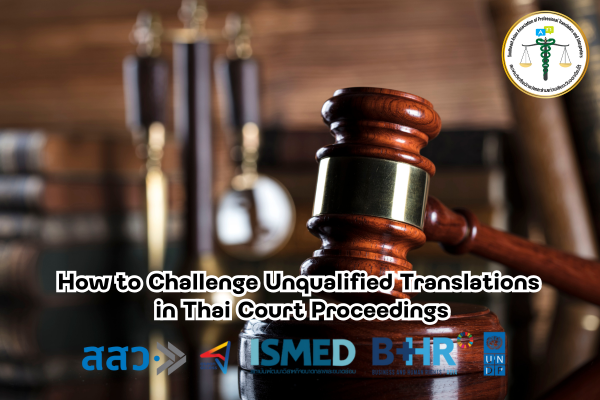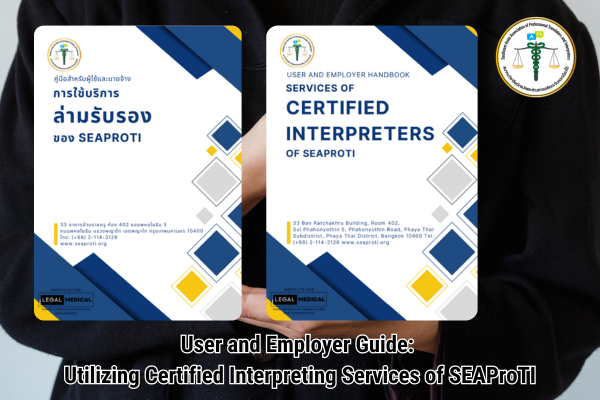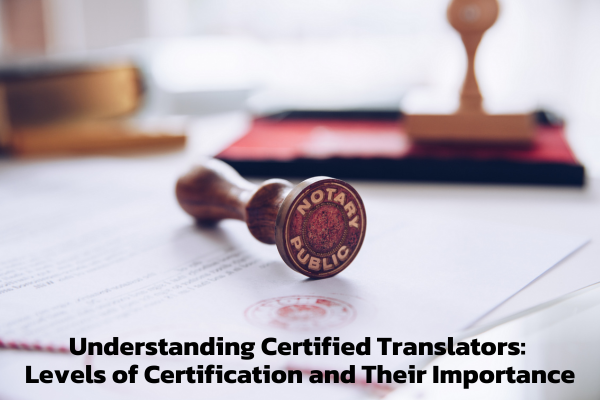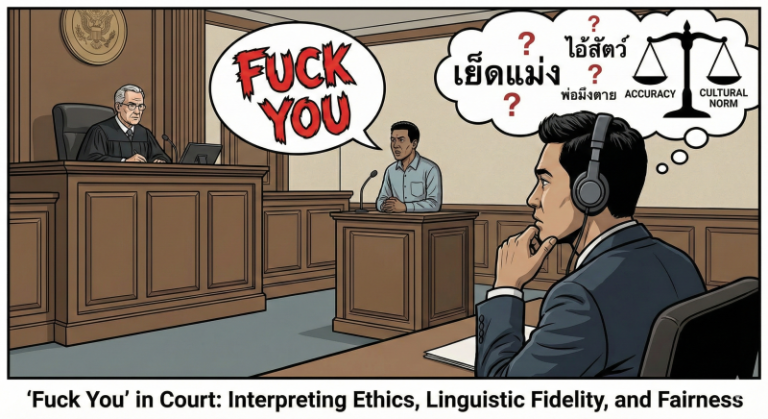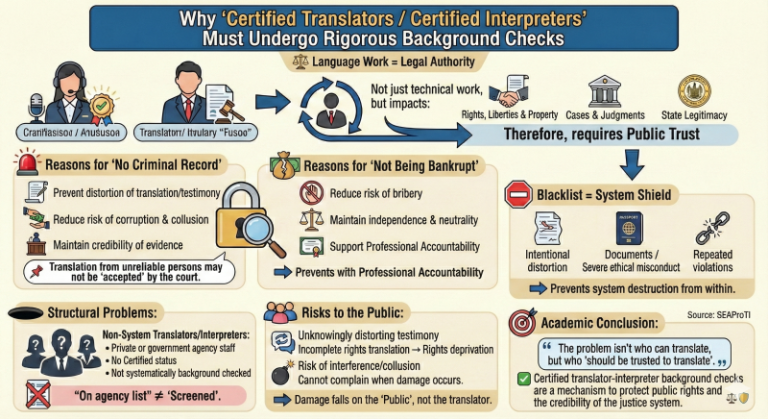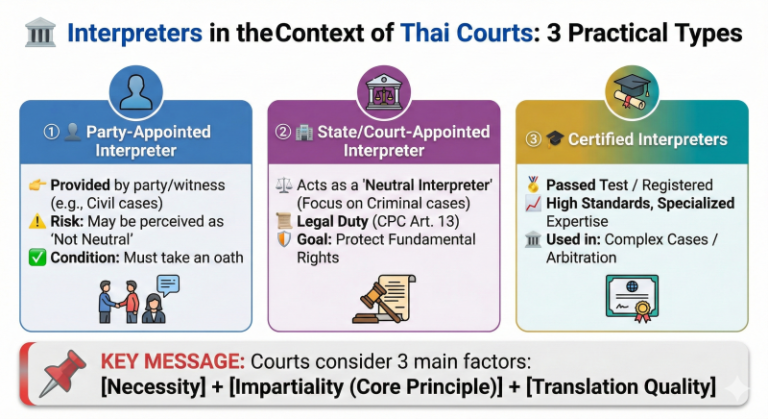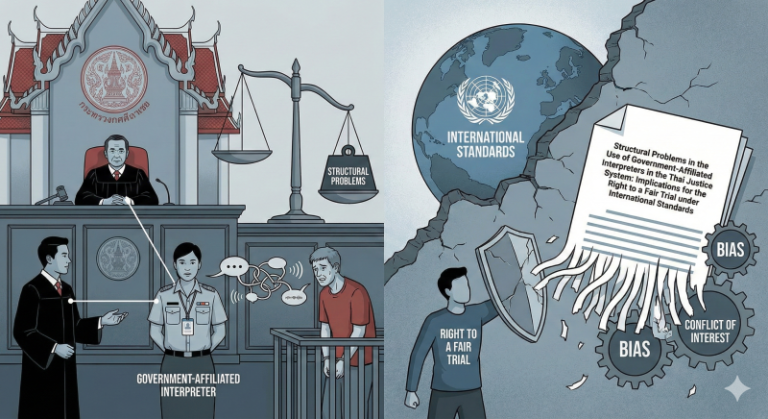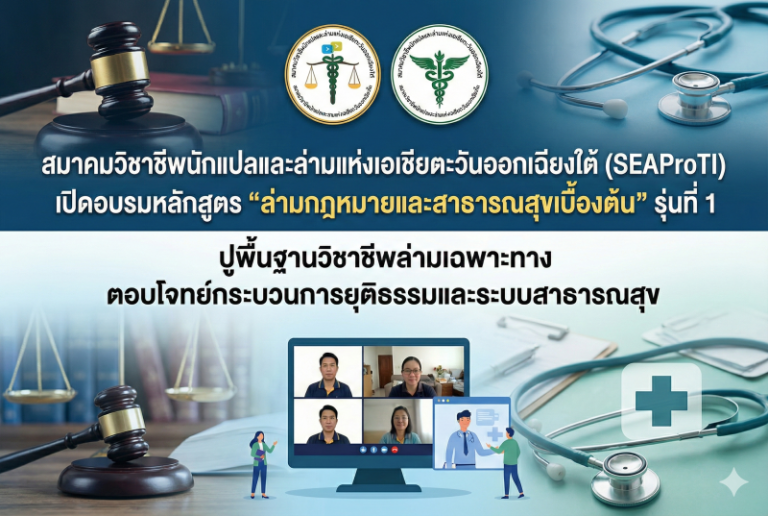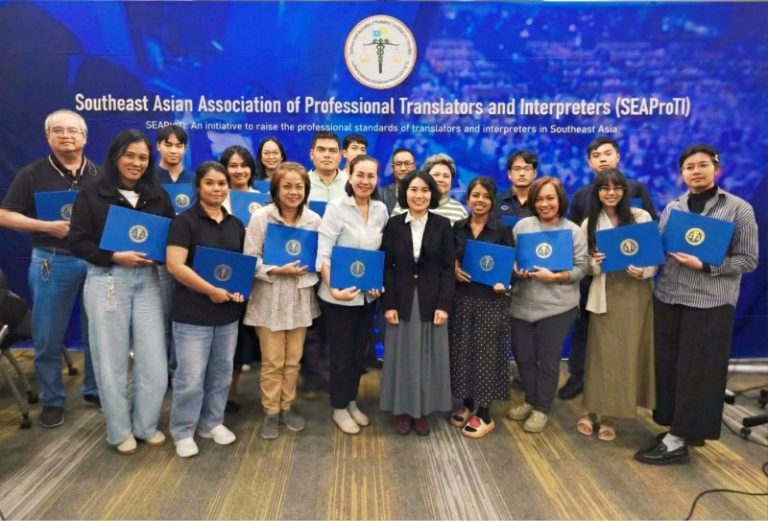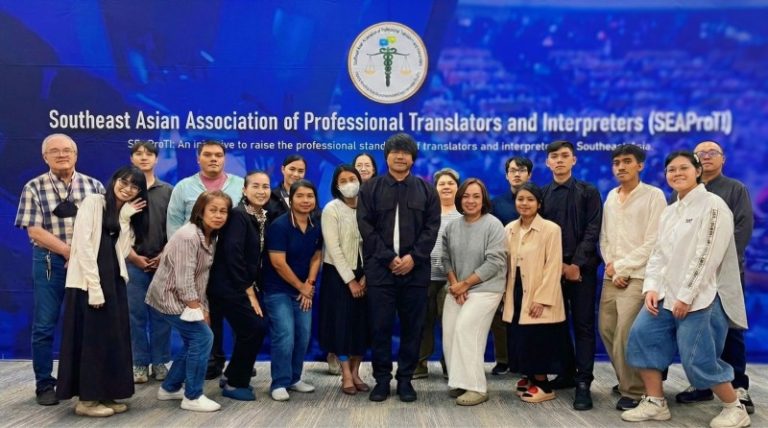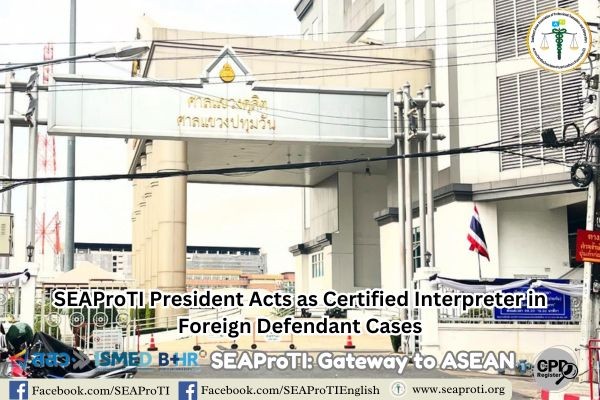How to Challenge Unqualified Translations in Thai Court Proceedings
21 April 2025, Bangkok – In Thailand, the accuracy of translations and interpretations used in court proceedings is critical to ensuring fairness and due process. When translations are provided by unqualified individuals, they can introduce serious errors that may influence the outcome of a case. To challenge such translations in a Thai courtroom, parties can take the following steps:
1. Question the Translator’s Qualifications
Begin by scrutinizing the qualifications of the person who translated the documents or interpreted the testimony. Thai courts generally expect translators and interpreters to have specialized training, particularly in legal terminology and the Thai language. If the individual lacks formal certification or experience in legal interpretation or translation, this should be brought to the court’s attention. You can request that the court verify the individual’s credentials and their ability to handle legal content accurately. Highlighting the risks of relying on unqualified translators can prompt the court to take corrective measures.
2. Raise Objections During the Trial
If you become aware of inaccuracies or misleading translations during proceedings, it is essential to raise an objection immediately. Timely objections help preserve the issue for potential appeal and may prevent faulty translations from being accepted into the record. In cases involving interpreted testimony, you may also request to cross-examine the interpreter to reveal translation mistakes or questionable interpretive choices. This cross-examination can demonstrate how the inaccurate translation might mislead the court or prejudice one of the parties.
3. Request a Certified Translator or Interpreter
When concerns arise about the quality of interpretation or translation, ask the court to appoint a certified professional. Ideally, this would be someone recognized by a professional body such as the Southeast Asian Association of Professional Translators and Interpreters (SEAProTI) or another qualified entity. In criminal cases, especially where one party has limited Thai proficiency, the court is legally obligated to provide an interpreter. If the interpreter provided is not adequately qualified, you have the right to contest their appointment and request a replacement who meets appropriate standards.
4. Verify and Correct the Court Record
Thai court proceedings typically rely on the judge’s dictated summary of testimony, which is transcribed and then signed off by the parties involved. Before you sign any court records, carefully review the transcription for errors that may have arisen from poor translation. If any discrepancies or inaccuracies are found, request corrections before the record is finalized. This step is crucial because once the record is signed and submitted, it becomes part of the official case file and can heavily influence the final judgment.
5. Raise Translation Issues on Appeal
If the trial court fails to properly address translation errors, and those errors appear to have impacted the fairness of the trial, you may raise the issue on appeal. Appellate courts in Thailand can consider whether mistranslations infringed upon a defendant’s rights to a fair trial or due process. This is especially relevant when the translated material formed part of the evidence or testimony that the court relied upon in reaching its decision.
Final Thoughts
Translation and interpretation play a vital role in ensuring justice in Thailand’s multilingual legal landscape. By questioning the qualifications of unqualified translators, raising timely objections, demanding certified professionals, verifying court records, and appealing when necessary, you can help uphold the integrity of the judicial process. These steps are essential in protecting the rights of all parties and ensuring that language does not become a barrier to justice.
SEAProTI’s certified translators, translation certification providers, and certified interpreters:
The Southeast Asian Association of Professional Translators and Interpreters (SEAProTI) has officially announced the criteria and qualifications for individuals to register as “Certified Translators,” “Translation Certification Providers,” and “Certified Interpreters” under the association’s regulations. These guidelines are detailed in Sections 9 and 10 of the Royal Thai Government Gazette, issued by the Secretariat of the Cabinet under the Office of the Prime Minister of the Kingdom of Thailand, dated July 25, 2024, Volume 141, Part 66 Ng, Page 100.
To read the full publication, visit: the Royal Thai Government Gazette
การคัดค้านการแปลโดยผู้ที่ไม่มีคุณสมบัติในกระบวนการพิจารณาคดีของศาลไทย
21 เมษายน 2568, กรุงเทพมหานคร – ในประเทศไทย ความถูกต้องของการแปลและการล่ามที่ใช้ในกระบวนการพิจารณาคดีถือเป็นเรื่องสำคัญยิ่งต่อความยุติธรรมและหลักกระบวนการที่ถูกต้อง หากการแปลดำเนินการโดยบุคคลที่ไม่มีคุณสมบัติ อาจทำให้เกิดข้อผิดพลาดร้ายแรงที่ส่งผลต่อผลของคดีได้ หากต้องการคัดค้านการแปลในชั้นศาลไทย สามารถดำเนินการตามขั้นตอนต่อไปนี้:
1. ซักถามคุณสมบัติของนักแปลหรือล่าม
เริ่มต้นด้วยการตรวจสอบคุณวุฒิของบุคคลที่ทำการแปลเอกสารหรือเป็นล่ามในห้องพิจารณาคดี ศาลไทยมักคาดหวังให้นักแปลหรือล่ามมีการฝึกอบรมเฉพาะทาง โดยเฉพาะในเรื่องศัพท์กฎหมายและภาษาไทย หากบุคคลนั้นไม่มีใบรับรองหรือประสบการณ์ในด้านการแปล/ล่ามทางกฎหมาย ควรแจ้งต่อศาลเพื่อให้ศาลตรวจสอบคุณสมบัติและความสามารถในการแปลเนื้อหาทางกฎหมายได้อย่างถูกต้อง พร้อมทั้งชี้ให้เห็นถึงความเสี่ยงจากการพึ่งพาผู้ที่ไม่มีคุณสมบัติเหล่านี้
2. คัดค้านระหว่างการพิจารณาคดี
หากพบความคลาดเคลื่อนหรือความไม่ถูกต้องในการแปลระหว่างการพิจารณา ต้องยื่นคัดค้านทันที การคัดค้านอย่างทันท่วงทีมีความสำคัญ เพราะจะทำให้สามารถนำประเด็นนี้ขึ้นอุทธรณ์ได้ในภายหลัง และอาจทำให้ศาลไม่รับคำแปลที่ไม่ถูกต้องเข้าเป็นส่วนหนึ่งของสำนวนคดี หากเป็นกรณีของการล่ามพยานในศาล คุณสามารถร้องขอให้มีการซักค้านล่ามเพื่อเปิดเผยข้อผิดพลาดหรือการแปลที่ผิดหลัก ซึ่งจะช่วยแสดงให้เห็นว่าการแปลที่ผิดพลาดนั้นอาจทำให้เกิดความเข้าใจผิดหรือสร้างอคติต่อฝ่ายใดฝ่ายหนึ่ง
3. ขอให้ศาลแต่งตั้งนักแปลหรือล่ามที่ผ่านการรับรอง
หากมีข้อกังวลเกี่ยวกับคุณภาพของการแปลหรือการล่าม คุณสามารถร้องขอให้ศาลแต่งตั้งนักแปลหรือล่ามที่ได้รับการรับรองจากองค์กรวิชาชีพ เช่น สมาคมวิชาชีพนักแปลและล่ามแห่งเอเชียตะวันออกเฉียงใต้ (SEAProTI) หรือหน่วยงานที่น่าเชื่อถืออื่น ๆ โดยเฉพาะในคดีอาญาที่จำเลยหรือคู่ความไม่ถนัดภาษาไทย ศาลมีหน้าที่ต้องจัดหาล่ามให้ตามกฎหมาย หากล่ามที่แต่งตั้งไม่มีคุณสมบัติเหมาะสม คุณมีสิทธิขอให้เปลี่ยนตัวบุคคลที่มีมาตรฐานเหมาะสมกว่า
4. ตรวจสอบและแก้ไขบันทึกการพิจารณาคดี
ในกระบวนการพิจารณาคดีของไทย ผู้พิพากษาจะเป็นผู้บันทึกสรุปคำให้การซึ่งจะถูกถอดความและให้คู่ความลงลายมือชื่อรับรอง ควรตรวจสอบข้อความในบันทึกอย่างรอบคอบก่อนเซ็นชื่อ โดยเฉพาะในส่วนที่อาจมีความคลาดเคลื่อนจากการแปล หากพบความผิดพลาด ควรร้องขอให้แก้ไขก่อนที่บันทึกจะถูกส่งเข้าเป็นส่วนหนึ่งของสำนวน เพราะเมื่อบันทึกได้รับการรับรองและส่งเข้าสำนวนแล้ว จะกลายเป็นข้อมูลทางการที่มีผลต่อคำพิพากษา
5. ยกประเด็นข้อผิดพลาดในการแปลในชั้นอุทธรณ์
หากศาลชั้นต้นไม่ดำเนินการใด ๆ กับปัญหาการแปลที่คลาดเคลื่อน และข้อผิดพลาดนั้นส่งผลกระทบต่อความเป็นธรรมของการพิจารณาคดี คุณสามารถยื่นอุทธรณ์ในประเด็นนี้ได้ ศาลอุทธรณ์สามารถพิจารณาว่าข้อผิดพลาดจากการแปลนั้นละเมิดสิทธิของจำเลยในเรื่องความยุติธรรมและกระบวนการที่ถูกต้องหรือไม่ โดยเฉพาะเมื่อเนื้อหาที่แปลกลายเป็นพยานหลักฐานที่ศาลยึดถือประกอบการตัดสิน
ข้อคิดส่งท้าย
การแปลและการล่ามมีบทบาทสำคัญต่อความยุติธรรมในระบบศาลไทยซึ่งมีความหลากหลายทางภาษา การตั้งคำถามเกี่ยวกับคุณสมบัติของนักแปลที่ไม่มีมาตรฐาน การคัดค้านอย่างทันท่วงที การเรียกร้องให้มีผู้เชี่ยวชาญที่ได้รับการรับรอง การตรวจสอบบันทึกศาล และการอุทธรณ์ในกรณีที่จำเป็น ล้วนเป็นขั้นตอนสำคัญในการรักษาความถูกต้องของกระบวนการยุติธรรม และป้องกันไม่ให้ภาษาเป็นอุปสรรคต่อการเข้าถึงความยุติธรรมของทุกฝ่าย
เกี่ยวกับนักแปลรับรอง ผู้รับรองการแปล และล่ามรับรองของสมาคมวิชาชีพนักแปลและล่ามแห่งเอเชียตะวันออกเฉียงใต้
สมาคมวิชาชีพนักแปลและล่ามแห่งเอเชียตะวันออกเฉียงใต้ (SEAProTI) ได้ประกาศหลักเกณฑ์และคุณสมบัติผู้ที่ขึ้นทะเบียนเป็น “นักแปลรับรอง (Certified Translators) และผู้รับรองการแปล (Translation Certification Providers) และล่ามรับรอง (Certified Interpreters)” ของสมาคม หมวดที่ 9 และหมวดที่ 10 ในราชกิจจานุเบกษา ของสำนักเลขาธิการคณะรัฐมนตรี ในสำนักนายกรัฐมนตรี แห่งราชอาณาจักรไทย ลงวันที่ 25 ก.ค. 2567 เล่มที่ 141 ตอนที่ 66 ง หน้า 100 อ่านฉบับเต็มได้ที่: นักแปลรับรอง ผู้รับรองการแปล และล่ามรับรอง


